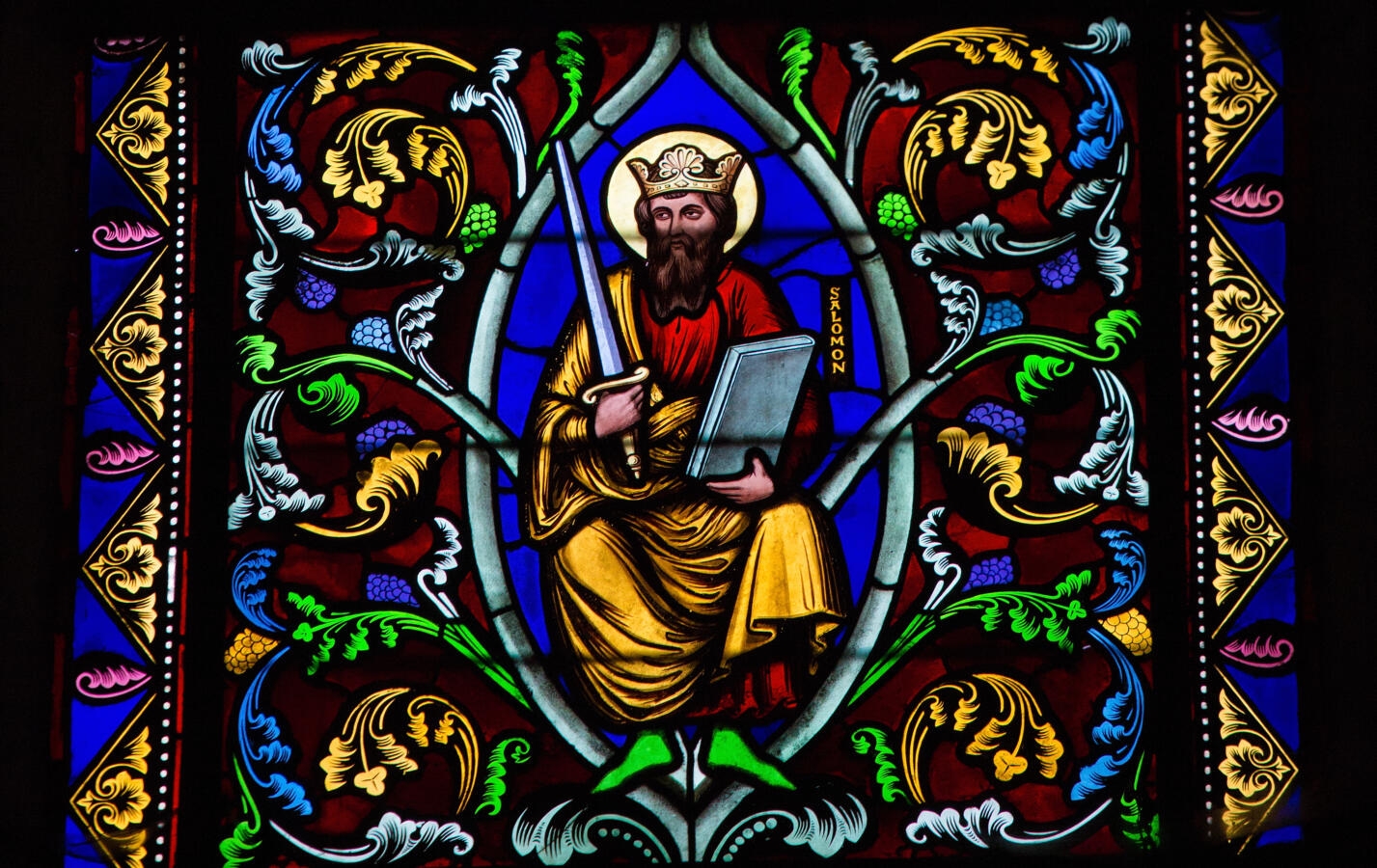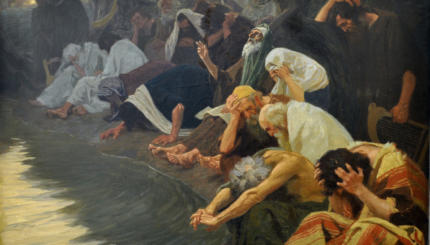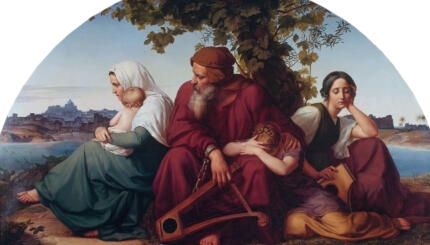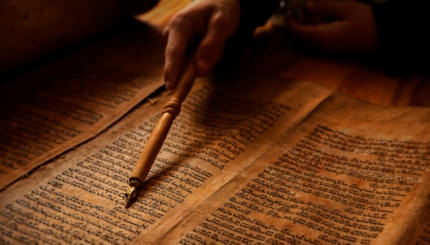The Book of Proverbs is the second book in the Ketuvim (or Writings), the third section of the Tanakh (Hebrew Bible). The full Hebrew title is Mishlei Shlomo, or The Proverbs of Solomon, a reference to King Solomon, who, according to Jewish tradition, is the author of Mishlei.
Who Wrote the Book of Proverbs?
In spite of this attribution, it is unlikely that Solomon, in fact, authored much of Proverbs. For one, several other authors are credited throughout the book, such as the officials of King Hezekiah, Agur son of Yakeh and King Lemuel. Also, while much of the material may have been produced prior to the Jewish exile from Israel, some modern scholars set the book’s true completion in the post-exile period, long after King Solomon’s actual reign.
The attribution more likely stems from the tradition of tying a book to a biblical figure known for a certain quality. For example, the Book of Psalms is associated with King David, who was known to be a poet and musician. King Solomon was known for his wisdom, and so Proverbs might have seemed like a natural fit.
Much of the book may be unfamiliar to many; however, it does include a few notable passages. One in particular, has become a focal point of the Torah service — etz hayim hi lamahazikim ba v’tomkheha m’ushar or “It is a tree of life to those who grasp her, and whoever holds on to her is happy.” (Proverbs 3:18)
The Book of Proverbs fits within the genre of wisdom literature, as it is unconcerned with Israelite practices such as Temple worship or sacrifice.
Instead, Proverbs offers statements about how to conduct one’s life wisely. While the book does not offer a systematic presentation of specific doctrinal principles, Israelite or otherwise, Proverbs does convey a clear view of reward and punishment connected directly to God. Chapter 1, verse 7 sets the tone: “Fear of the Lord is the beginning of knowledge.” Then the text delves further:
For the upright will abide in the land, and the innocent shall remain in it; but the wicked will be cut off from the land, and the treacherous will be rooted out of it. (Proverbs 2:21-22)
Everything begins with God. The good shall be rewarded, and the evil punished. And those who truly pursue wisdom will find reward greater than material wealth: “Happy are those who find wisdom…for her income is better than silver, and her revenue better than gold (Proverbs 3:13-14) Wisdom itself is the greatest reward of all.
Wisdom, Personified
One of the most defining characteristics of Proverbs is the recurring figure of Hokhma, Wisdom. This figure is a goddess-like being, similar to the Sophia of Greek philosophy. At first she appears almost like a prophet of Israel: “Wisdom cries out in the street, in the squares she raises her voice (Proverbs 1:20).”
She appeals to the people directly, urging them to follow her guidance, much the way that biblical prophets urged the sinning Israelites to atone for their sins. Her role shifts, though, when she speaks directly in Chapter 8. Her divine qualities come through, when she places herself right alongside God in the Creation story: “When He established the heavens, I was there…when He marked out the foundations of the earth, then I was beside him, like a master worker.” (Proverbs 8:27-30)
The Book of Proverbs also presents, as a counterpart to Wisdom, the loose or “strange” woman, who is prominent throughout the book.
Nearly all of Chapter 5 is dedicated to warning young men away from this evil woman: “For the lips of the loose woman drip honey, and her speech is smoother than oil…She does not keep straight to the path of life, her ways wander, and she does not know it.” (Proverbs 5:3-6).
This figure might be a metaphor for the folly that opposes Wisdom, but it might also be a more literal fear. This would accord with some of the book’s broader themes, such as preparing for adult responsibilities and choosing a suitable wife.
Warnings, Good Advice and Righteous Women
In warning young men away from temptresses, the text assumes a parental tone. Fitting with the theme of constant parental concern (many chapters begin with some variation of the entreaty “My child, accept my teachings”), children maturing into adulthood are instructed to choose the right path.
For example, Polonius’ words to Laertes in Hamlet are reminiscent of Proverbs 3:30, “Do not quarrel with anyone without cause, when no harm has been done to you.” In Hamlet, Act 1, Scene 3, Shakespeare writes: “Beware of entrance to a quarrel…give every man thy ear, but few thy voice.” The parental investment in both texts is clear –a family that upholds the right qualities guarantees that God’s will is followed.
All these themes are summed up in the final 22 verses in Proverbs, better known as Eshet Hayil. The simplest reading of these verses yields an acrostic poem that describes an ideal woman. While that simple reading might yield a lovely poem to read to one’s wife, it may also be seen as a dedication to this figure of Wisdom that figures so prominently throughout the book.
The same qualities of courage, kindness and piety expounded throughout Proverbs are embodied in this woman — or in the spirit of Wisdom. Some scholars point to earlier references to Wisdom, such as (31:10) “worth greater than jewels,” which nearly replicates the “she is more precious than jewels” of Proverbs 3:15. Whether it’s simply a song to one’s wife, a dedication to an idea, or something else, the themes of Proverbs are neatly summed up in Eshet Hayil: Build a worthy family, stay on the path of virtue and you shall be rewarded.
Torah
Pronunced: TORE-uh, Origin: Hebrew, the Five Books of Moses.



